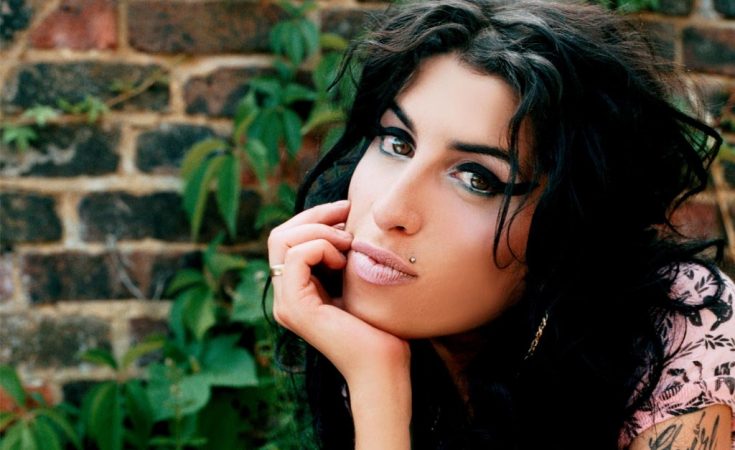On the 26th July 2011, Amy Winehouse was cremated. This strikes me as slightly strange since burial, not cremation, is the traditional Jewish rite. But I can understand the will that her grave not be made into a shrine. An equivalent to the Jim Morrison Paris pilgrimage to Edgwarebury Cemetery doesn’t feel right to me (my grandfather is buried there; it’s a peaceful, tucked-away corner of North London and doesn’t need to become another ostentatious Highgate Cemetery).
No, the real shrine is outside her £2.5 million home in Camden Square, where my friend Rachael and I went yesterday to, for want of a better expression, pay our respects.
Much like Amy herself, it was loud, undignified and colourful. People were playing music from their cars, dancing and boozing in the street. Many were smoking and taking photos of the various messages, paintings and floral tributes. There were beer cans and fags strewn amidst teddies and swear words carved on trees. Nobody cried; people chatted with strangers asking where they were from and what Amy meant to them. There was no sense of wallowing in grief; merely a pensive kind of elation that felt a bit uncomfortable at first.
We laid flowers from our hair – for us, a fashion-related tribute was more fitting than laying alcohol or any other part of her addiction that was instrumental in killing her. The whole scene was vibrant, trendy and oh-so-very Camden – but it was totally appropriate.
The thing about Amy Winehouse is that we felt like we knew her; Jewish circles (in North London in particular) are intimate – everyone knows everyone or at least shares a few mutual Facebook friends. We are the same age, live in the same area and frequent The Hawley Arms. We copy her beehive hairstyle and admire her for bringing Jewish beauty and soul-filled music to the forefront of the narrow world of celebrity, much like Barbra Streisand did in the 60s.
Amy (not Winehouse, but just Amy) was just a nice Jewish girl: relatable and local. In fact, she was the Jewish girl, perhaps the most famous British Jew of the past decade. Perhaps even more than her voice, I think her proximity has played a part in her admiration for her: she was just one of us – a local girl made good.
Everyone has a story – for Rachael, it was that Mitch Winehouse once told her she reminded him of Amy in a Jewish Battle of the Bands competition; a compliment that Rachael will never forget. She was our role model and we observed her life, shamelessly, through the tabloids as she descended down her tumbling trajectory. As ex-Heat Editor Mark Frith describes it, these were the “dark days of celebrity” and we were all guilty of consuming them.
This isn’t to play down the crucial differences. We have no pressures of fame or fortune, no calls to lose weight and no Class A drugs thrust under our noses. If we did, would we succumb like Amy? Addiction is a sickness and her story of self-destruction is woeful. I’ve never bought into the theory of blaming the parents or a rough childhood on how a person turns out; I believe we all have a choice to make a difference to our lives, but that we are also all entitled to help. Her choice was poisoned by her addiction, from which not even her (self-made anthem) Rehab could provide respite.
More than a waste of an incredible talent as many are branding it, her death is a waste of a life, of a young Jewish girl who could’ve been anyone but who made it as a someone. Her death was not inevitable; a series of circumstances went one awful way when they just as easily could have gone another, if help had reached her in time. But that’s just the terrible way it is.
A wonderful tradition at Jewish funerals is to wish each other a long life. I’d like to think this phrase provided some small comfort for Amy’s loved ones.
L’chaim…to life.
This blog post can also be found on The Huffington Post UK.





No Responses